#Blockchain Development Services
Explore tagged Tumblr posts
Text
The 6 Roles of Blockchain Technology in Pharma’s Future
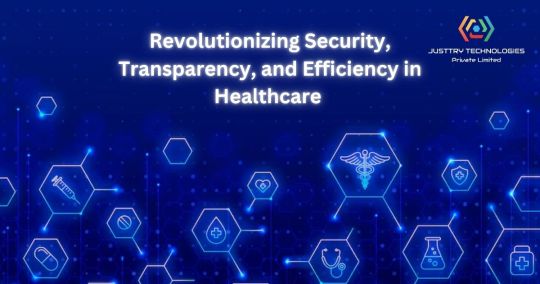
Introduction
The pharmaceutical industry is undergoing a digital transformation, and blockchain technology is at the forefront of this revolution. Traditional challenges such as counterfeit drugs, regulatory inefficiencies, clinical trial fraud, and data breaches have long plagued the sector. Blockchain, with its decentralized and tamper-proof nature, offers solutions that can enhance security, transparency, and operational efficiency.
As blockchain development service providers continue refining solutions for pharma, companies are beginning to adopt this technology to streamline supply chains, enhance patient data security, and automate compliance. This article explores six critical roles that blockchain will play in shaping the future of the pharmaceutical industry.
1. Securing the Pharmaceutical Supply Chain
Eliminating Counterfeit Drugs
Counterfeit medications pose a significant threat to global health, contributing to thousands of deaths annually. The World Health Organization (WHO) estimates that one in ten medical products in low- and middle-income countries is substandard or falsified.
End-to-End Traceability
Blockchain technology enables a fully transparent supply chain, where each transaction is recorded in an immutable ledger. This ensures that every stakeholder—from manufacturers to pharmacists—can verify a drug’s authenticity in real-time.
Real-Time Verification
With blockchain-based tracking, patients, healthcare providers, and regulatory agencies can instantly verify the legitimacy of medications. Leading pharmaceutical companies like Pfizer and Roche are already exploring blockchain to secure drug distribution and eliminate counterfeit products from the market.
2. Enhancing Drug Safety and Regulatory Compliance
Immutable Drug Records
Regulatory compliance in the pharmaceutical industry requires strict adherence to safety protocols, but traditional record-keeping methods are prone to errors and fraud. Blockchain ensures that all drug-related data, including batch numbers, manufacturing dates, and storage conditions, are permanently recorded and cannot be altered.
Automated Compliance Monitoring
Smart contracts—self-executing digital agreements stored on the blockchain—can automate compliance checks, ensuring that drugs meet safety regulations before they reach the market. This reduces human error and enhances accountability.
Rapid Recalls and Alerts
When safety concerns arise, blockchain enables instant notifications and targeted recalls. Instead of relying on slow, paper-based tracking systems, companies can pinpoint affected batches within seconds, reducing risks to patients and minimizing financial losses.
3. Revolutionizing Clinical Trials and Research
Data Integrity and Security
Clinical trials are the foundation of medical innovation, but they are often plagued by fraud and inefficiencies. Blockchain ensures that trial data is immutable, preventing manipulation or selective reporting. This guarantees transparency and fosters trust in research findings.
Streamlined Patient Consent
Informed consent is a crucial aspect of clinical trials, yet traditional methods often lack security and efficiency. Blockchain-based smart contracts can automate consent management, ensuring that patients have full control over their participation while reducing administrative burdens for researchers.
Faster Drug Development
By securely sharing trial data among researchers, pharmaceutical companies, and regulatory agencies, blockchain accelerates the drug development process. Faster access to verified data can lead to quicker approvals, ultimately bringing life-saving medications to patients sooner.
4. Enabling Secure and Efficient
Automated Payments with Smart Contracts
The pharmaceutical industry involves complex financial transactions between manufacturers, insurers, healthcare providers, and distributors. Blockchain simplifies these transactions by using smart contracts to automate payments based on pre-set conditions.
Reduced Fraud and Corruption
Traditional financial systems in the pharma sector are susceptible to fraud and inefficiencies. Blockchain’s decentralized ledger eliminates intermediaries, ensuring transparent and corruption-free transactions.
DeFi in Pharma
Decentralized finance (DeFi) applications powered by blockchain could revolutionize pharmaceutical funding. Companies can leverage tokenized assets to raise funds for research and development, bypassing traditional banking limitations.
5. Improving Patient Data Security
Decentralized Electronic Health Records (EHR)
Patient data is often stored in centralized databases, making it vulnerable to cyberattacks. Blockchain provides a decentralized and encrypted framework where patients control their health records, granting access only to authorized healthcare providers.
Seamless Data Sharing
Healthcare providers often struggle with interoperability issues, leading to treatment delays. Blockchain allows for secure, real-time data sharing across hospitals, research institutions, and insurance providers, ensuring a more efficient healthcare ecosystem.
Enhanced Privacy Protections
With data breaches on the rise, blockchain’s encryption protocols enhance patient privacy, reducing the risk of identity theft and unauthorized access to sensitive medical information.
6. The Future of Blockchain in Pharma
AI and Blockchain Integration
The combination of artificial intelligence (AI) and blockchain could further optimize drug manufacturing, predicting supply and demand trends to reduce waste and inefficiencies.
Tokenized Incentives
Blockchain could introduce tokenized rewards for patients participating in clinical trials, encouraging greater involvement and leading to more diverse research data.
Decentralized Research Collaboration
Pharmaceutical companies, universities, and biotech startups could collaborate more efficiently using blockchain-based decentralized networks. This would eliminate data silos and accelerate groundbreaking medical discoveries.
Conclusion
Blockchain technology is revolutionizing the pharmaceutical industry, offering unprecedented levels of security, efficiency, and transparency. From securing supply chains and automating compliance to enhancing patient data security and accelerating drug development, blockchain is set to become an essential pillar of the pharma ecosystem. As blockchain development service providers continue to innovate, pharmaceutical companies that embrace this technology will be better positioned to lead in an increasingly digital and decentralized future. The adoption of blockchain is not just a technological upgrade—it is a necessary evolution for a safer, more efficient, and patient-centric pharmaceutical industry.
#blockchain#blockchain development services#blockchain development#blockchain in healthcare#supply chain management#supply chain#technologies#development
2 notes
·
View notes
Text
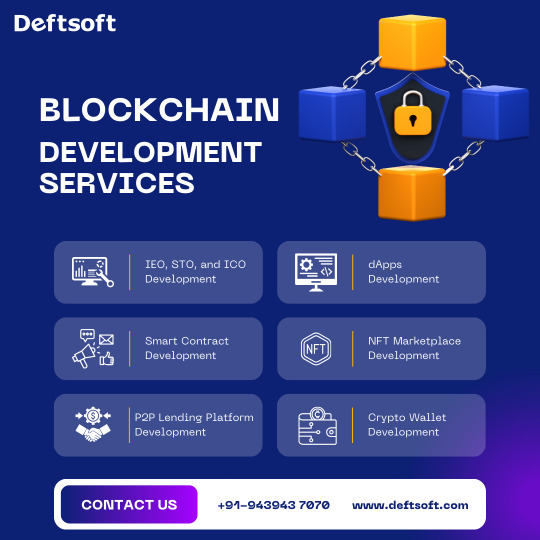
Empower your business with cutting-edge solutions from a trusted blockchain development company. Whether you need custom blockchain applications, crypto wallets, or token development, we deliver end-to-end services to transform your digital strategy. Let’s build the future together—reach out to us today!
#blockchain development#blockchain development company#blockchain development services#blockchain technology#blockchain
1 note
·
View note
Text
Blockchain Development Services in UAE - WDCS Technology
WDCS Technology in the UAE stands as a pioneer in Blockchain Development Services, catalyzing technological innovation. Offering end-to-end solutions, they harness the power of blockchain to enhance security, transparency, and efficiency across diverse industries. WDCS specializes in developing bespoke blockchain applications, smart contracts, and decentralized solutions tailored to clients' unique needs. With a commitment to excellence, they navigate the complex landscape of distributed ledger.
#blockchain services#blockchain development services#blockchaintechnology#hire blockchain developers#technology#blockchain technology
0 notes
Text
Mindfire Solutions is a leading technology partner known for delivering innovative software solutions globally. With deep expertise across industries, it helps businesses leverage digital transformation to gain a competitive edge. The company offers end-to-end blockchain development services, empowering clients to build secure, transparent, and decentralized applications. Mindfire's experienced developers work with cutting-edge technologies to create custom blockchain solutions tailored to diverse business needs. From smart contracts to private blockchain networks, Mindfire ensures reliable and scalable implementations with a client-focused approach.

#blockchain development services#custom blockchain development services#blockchain solutions#blockchain as a service
0 notes
Text
Unpacking the Smart Contract Model of Near Blockchain
Near Blockchain offers a powerful smart contract model designed for speed, scalability, and developer ease. With its unique Nightshade sharding and low transaction fees, Near is becoming a top choice for building decentralized applications across sectors like DeFi, gaming, and NFTs. Its user-friendly environment supports rapid development while maintaining high security and performance. Positioned as a leading platform for Web3 innovation, it allows businesses to deploy smart contracts that are efficient, reliable, and future-ready. As interest in advanced blockchain infrastructure grows, blockchain development companies in india are increasingly turning to Near to deliver robust, scalable solutions for modern digital ecosystems. Whether you're launching a startup or upgrading legacy systems, Near’s smart contract capabilities provide a competitive edge. For trusted development services, partner with wisewaytec, your dedicated blockchain technology expert.
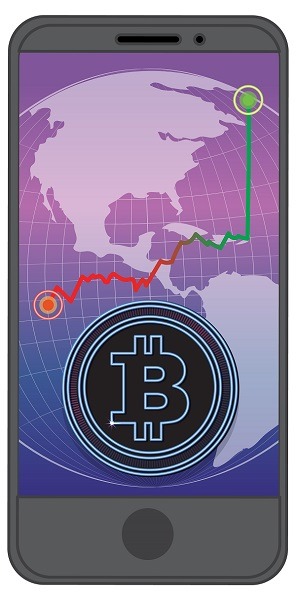
0 notes
Text
Blockchain Development Solutions: Tools, Frameworks, and Tips
Blockchain technology is transforming industries by enabling decentralised, secure, and transparent systems. To build effective blockchain solutions, developers must choose the right tools, frameworks, and strategies that align with project goals and business requirements. Popular blockchain development solutions include platforms like Ethereum for smart contracts, Hyperledger Fabric for enterprise applications, and Polkadot for interoperability between chains. Development frameworks such as Truffle and Hardhat streamline smart contract deployment and testing, while tools like Ganache allow developers to create personal Ethereum blockchains for rapid testing.
Integrating these technologies requires expertise in cryptography, consensus mechanisms, and secure coding practices to build scalable and robust applications. Effective blockchain development services go beyond coding; they include strategic architecture design, smart contract audits, integration with existing systems, and user-friendly front-end development to deliver seamless blockchain applications.
Staying updated with emerging trends such as Layer-2 scaling, zero-knowledge proofs, and cross-chain bridges is essential for businesses to remain competitive. Additionally, adopting DevOps and CI/CD practices in blockchain development improves deployment efficiency, reduces bugs, and enhances security.
Choosing the right blockchain development services ensures your project benefits from industry best practices, tailored frameworks, and reliable post-deployment support to maximise ROI and achieve operational excellence.
Wisewaytec offers comprehensive blockchain development services, leveraging advanced tools and frameworks to build secure, scalable, and future-ready blockchain solutions for your business.
Partner with Wisewaytec to accelerate your blockchain projects and drive innovation with expert solutions tailored to your goals.
1 note
·
View note
Text
Blockchain Development Services for Secure & Scalable Applications
Searching for a reliable Blockchain Development Services Company- We specialize in building secure, decentralized apps, smart contracts, tokenization platforms, and private blockchain networks. Our Blockchain Development Services cover Ethereum, Hyperledger, Polygon, and more—ideal for fintech, supply chain, or NFT use cases. With strong experience in consensus protocols, API integration, and gas optimization, we ensure scalable, production-ready solutions. Ready to bring your blockchain project to life? Connect with experts committed to transparency, security, and modular architecture.
0 notes
Text
Blockchain development agency | Innovation & Excellence
Our Blockchain Development Agency transforms business operations with decentralized solutions. We build scalable dApps, smart contracts, token systems, and secure blockchain networks. Serving industries like finance, supply chain, and digital art, we deliver transparency and efficiency. Our experts work on platforms like Ethereum, Solana, and Hyperledger, offering end-to-end services. Visit our website for more details.
0 notes
Text
Blockchain technology in healthcare why hospitals are adopting it fast

1. Introduction
Blockchain in healthcare is revolutionizing the way hospitals manage patient data, security, and operational efficiency. With increasing cyber threats and inefficiencies in healthcare systems, hospitals are actively seeking innovative solutions. Blockchain technology for healthcare provides a decentralized, immutable, and transparent system that ensures data integrity, enhances security, and minimizes administrative burdens. The adoption of blockchain development services is accelerating as hospitals recognize its potential to streamline processes and improve patient outcomes.
2. The Challenges in Traditional Healthcare Systems
The healthcare industry faces persistent challenges that impact efficiency, security, and patient trust. Some of the most pressing issues include:
Data Breaches and Cyber Threats – Healthcare data is a prime target for cybercriminals. Patient records contain sensitive information, including medical histories, insurance details, and personal identification. Traditional databases are vulnerable to breaches, leading to significant financial and reputational damage.
Interoperability Issues – Hospitals and healthcare providers operate on different electronic health record (EHR) systems, making seamless data exchange difficult. Patients often experience delays in receiving treatment due to fragmented data systems.
Administrative Inefficiencies – Manual paperwork, redundant processes, and outdated record-keeping methods lead to operational inefficiencies. These inefficiencies increase costs and prolong patient wait times.
As hospitals strive to enhance efficiency and security, blockchain technology for healthcare offers a transformative solution.
3. How Blockchain Technology for Healthcare Solves These Problems
Blockchain development services provide hospitals with a robust framework to overcome these challenges. The key features of blockchain include:
Decentralized and Immutable Data Storage – Unlike traditional databases, blockchain stores patient data in a decentralized manner. This eliminates the risk of a single point of failure and prevents unauthorized alterations.
Enhanced Patient Data Security and Control – Blockchain encrypts patient data and grants access only to authorized users. Patients can control who accesses their medical records, ensuring privacy and security.
Seamless Interoperability – Blockchain enables secure and instant data exchange between hospitals, clinics, and laboratories. Medical professionals can access verified patient histories without intermediaries, reducing errors and improving care quality.
4. Key Benefits of Blockchain in Healthcare for Hospitals
The adoption of blockchain technology for healthcare is driven by several key advantages:
Data Security and Privacy – Blockchain's encryption and decentralization prevent unauthorized access to patient records. The immutability of data ensures that once information is recorded, it cannot be altered or deleted.
Interoperability Across Healthcare Providers – Hospitals can share verified medical records with other healthcare institutions without data loss or duplication. This seamless exchange reduces delays in treatment and enhances patient care.
Smart Contracts for Automation – Blockchain-powered smart contracts execute predefined agreements without human intervention. Hospitals use them for automated billing, insurance claims processing, and patient data transfers.
Fraud Prevention – Blockchain eliminates counterfeit drugs in the pharmaceutical supply chain by tracking medicines from production to distribution. Additionally, it prevents identity theft in medical insurance claims.
5. Real-World Applications of Blockchain Development Services in Healthcare
Hospitals are already leveraging blockchain technology for healthcare in various ways:
Electronic Health Records (EHR) Management – Secure and tamper-proof storage of patient records allows authorized medical professionals to access real-time data.
Automated Insurance Claims Processing – Smart contracts eliminate fraudulent claims by automatically verifying and executing insurance transactions. This reduces administrative costs and accelerates reimbursements.
Pharmaceutical Supply Chain Transparency – Blockchain tracks every stage of the drug supply chain, ensuring the authenticity of medications and preventing counterfeit drugs from entering the market.
Remote Patient Monitoring and Telemedicine – Blockchain stores and secures real-time patient data from wearable devices and telehealth consultations, improving remote care management.
6. Challenges Hospitals Face in Adopting Blockchain Technology
Despite its numerous benefits, hospitals encounter obstacles in blockchain adoption:
Regulatory and Compliance Hurdles – The healthcare industry operates under strict regulations regarding data protection and patient confidentiality. Adapting blockchain solutions to comply with regulatory frameworks requires careful planning.
Initial Costs and Infrastructure Upgrades – Implementing blockchain technology for healthcare demands investment in IT infrastructure and staff training. While the long-term benefits outweigh the costs, initial implementation can be expensive.
Training and Knowledge Gaps – Healthcare professionals and administrative staff need education on how to integrate and use blockchain-based systems effectively. Without proper training, adoption can be slow.
7. The Future of Blockchain in Healthcare
The rapid adoption of blockchain in healthcare suggests a promising future. Here are some key developments on the horizon:
Integration with Artificial Intelligence (AI) and Internet of Things (IoT) – AI-powered analytics combined with blockchain will enable predictive healthcare models, while IoT devices will securely transmit real-time patient data.
Government Adoption of Blockchain – Countries are exploring blockchain-based healthcare solutions for national medical record management and insurance processing.
Increased Patient Control Over Data – Blockchain will empower patients to access and share their medical records securely, enhancing transparency and trust in healthcare systems.
Conclusion
Hospitals are rapidly adopting blockchain technology for healthcare to address long standing challenges in data security, interoperability, and administrative inefficiencies. By leveraging blockchain development services, hospitals can improve patient care, reduce costs, and enhance trust within the healthcare ecosystem. As smart contracts and decentralized data management become the norm, blockchain will continue to shape the future of modern healthcare, paving the way for a more secure and efficient industry.
#technology#blockchain development#blockchain development services#blockchain in healthcare#smart contracts#blockchain technology in healthcare
1 note
·
View note
Text
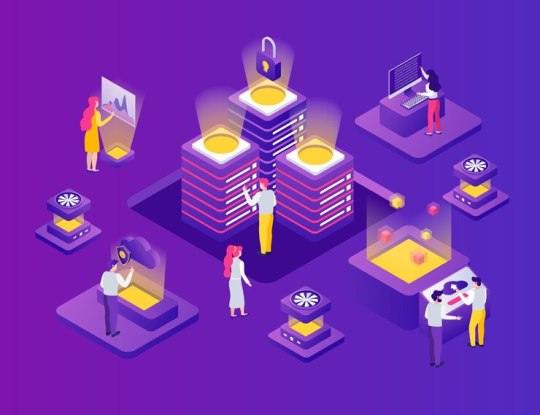
Deftsoft is your go-to blockchain development company for innovative and reliable blockchain solutions. Whether it's creating smart contracts or developing decentralized applications, we've got you covered. Partner with us and step into the future of technology. Visit our website today!
#blockchain development#blockchain technology#blockchain#blockchain services#blockchain development services
1 note
·
View note
Text
Why is 2025 Is the Right Time to Hire Blockchain Developers in the UAE?

Blockchain has moved far beyond the hype; today it sits at the heart of modern business. Whether it powers decentralized finance (DeFi), tracks goods in a supply chain, runs NFT marketplaces, or secures digital identities, this technology is reshaping how companies work. By 2025 the UAE plans to stand at the world's leading blockchain stage, giving firms that hire blockchain developers in UAE a perfect playground.
So, why should 2025 be your year to tap into Emirati blockchain talent? In this post we break down the unique market climate, friendly rules, growing skill pools, and location perks that make this moment priceless.
The UAE's Strategic Vision for Blockchain in 2025:
The UAE leadership has long worn the forward-thinking badge, and its blockchain roadmap proves the point. Initiatives like the Dubai Blockchain Strategy, the UAE Blockchain Strategy 2021, and now the UAE Web3 Roadmap 2025 offer more than slogans; they hand businesses real guides for change.
Key Milestones Driving Demand for Blockchain Talent:
The Smart Dubai 2025 Vision targets putting 100% of eligible government paperwork on-chain.
Devotion Marketplaces Command Centre (DMCC) Crypto Centre keeps pulling in global blockchain shops and coders.
Regulatory sandboxes from Abu Dhabi Global Market (ADGM) and Dubai's Virtual Assets Regulatory Authority (VARA) keep cutting red tape for on-the-ground testing.
Ongoing projects like MBRIF and the Emirates Blockchain Strategy show the UAE is building a supportive playground for makers and founders. Because firms now expect code to run inside local rules, the call for blockchain developers who know both law and tech is louder than ever.
Web3 Ecosystem in the UAE Is Booming:
Funding for Web3 and blockchain startups in the UAE jumped by nearly 50 percent last year, fresh market figures say. While the world rushes toward dApps, NFTs, smart contracts, and tokenized goods, the UAE is not merely joining the race-it is setting the pace.
Projects Putting the UAE on the Blockchain Map
FTX MENA, before its global exit, put a spotlight on regional exchanges.
MidChains, a crypto exchange licensed by ADGM, shows the market is maturing.
Government-backed systems for identity and health records now run on-chain.
With so much activity, firms need capable blockchain engineers, full-stack Web3 builders, and sharp smart-contract auditors. Delay hiring, and rivals will grab top talent while you are still reviewing resumes.
Talent Pool: Why Hiring Locally in the UAE Makes Business Sense
Finding skilled developers who can turn ideas into working blockchain apps is a big headache for projects everywhere. Luckily, the UAE-especially Dubai and Abu Dhabi-is building a deep bench of homegrown and returning talent already trained overseas.
What Makes UAE-Based Developers Stand Out:
Most speak English, Arabic, and a dozen code dialects, so cross-border work feels natural.
They have seen blockchain fly in finance, real estate, logistics, and more, so narrow industry habits don't hold them back.
Because they operate in a pro-innovation legal space, pesky paperwork rarely delays a release.
Hiring them means projects move fast, stay legal locally, and run on the same clock as their managers.
Regulatory Clarity Makes 2025 a Turning Point
Unclear crypto rules have frozen growth in many countries, but the UAE has opted for openness and speed. Dubai's Virtual Assets Regulatory Authority (VARA) illustrates how forward-thinking oversight can spark safe innovation.
Key Regulatory Highlights:
The ADGM and DIFC host digital-asset friendly zones with straightforward licenses.
Startups can roll out compliant ICOs, token sales, or blockchain platforms much faster than almost anywhere else.
Cross-border blockchain partnerships with European and Asian firms are now taking shape because of supportive UAE rules.
That push gives companies in 2025 the green light to move past simple proof-of-concept tests and roll out full blockchain apps, as long as skilled developers are at the helm.
Flexible Hiring Models in 2025:
1. Full-time, on-site teams for corporate-level rollouts
2. Remote or hybrid positions that reach into nearby markets
3. Turnkey squads from local blockchain studios that manage the whole project
Whatever route you choose, UAE developers bring top-tier skill and adhere to business ethics rooted in the region.
UAE’s Blockchain-Ready Infrastructure
Few nations pour money into digital pipes like the UAE; 5G, cloud nodes, and tight security form the bedrock every blockchain needs.
That solid backbone lets developers weave blockchain into larger projects with AI, the Internet of Things, or big-data dashboards. A coder here is never alone; they plug into a broad vision of nationwide digital change.
Industry-Specific Demand for Blockchain Talent
Hiring blockchain devs in the UAE isn t just about building cool code. Real-world industries are pulling the tech into everyday operations so it actually earns money.
Key Sectors Actively Hiring Blockchain Developers in UAE:
Real Estate : Tokenized listings, smart contracts, clear transactions.
Healthcare : Unchangeable patient files, e-prescriptions, supply chain checks.
Finance : Cross-border payments, KYC/AML on-chain, DeFi services.
Retail & E-commerce : NFT rewards, traceable goods.
Government Services : Digital ID, document checks, online voting.
This broad rush forces companies to chase coders who know both blockchain and their field.
The Competitive Advantage of Hiring Early
By 2025, landing top blockchain coders in the UAE will be cut-throat. Startups keep popping up while older firms shift to Web3, and demand will soon beat supply.
Why Hiring Now Matters:
Lock in talent before rivals.
Get your product to users sooner.
Seize first-mover edge in niche areas (real-estate tokens, green-credit chains).
Wait too long and you may end up with junior devs or hand your project to outsourced teams that don t know local rules and habits.
How to Hire Blockchain Developers in UAE in 2025?
Finding the right blockchain talent in the UAE isn't difficult if you know where to look and stick to your budget.
Your best options are:
Team up with a local blockchain firm such as WDCSTechnology.ae
Hire single developers through UAE job boards or tech meet-ups like GITEX
Go through an incubator that can introduce you to its in-house coders
Bring on a freelance advisor to audit your idea or build a quick MVP
No matter which path you pick, check that these experts know Solidity, Ethereum, Polygon, Rust, or Hyperledger and can navigate local data rules.
Final Thoughts: 2025 Is the Tipping Point
Government support, solid tech grids, a growing talent pool, and rising business need line up in 2025. Delay and you risk trailing the market as it moves faster than ever.
Ready to Build Your Blockchain Vision in the UAE?
If you want to launch a blockchain app or weave Web3 ideas into your company, start recruiting now. Local specialists can guide you through regulations and culture from day one.
Contact WDCS Technology to hire top blockchain developers in UAE and turn your idea into a secure, scalable, and future-ready solution.
#blockchain services#blockchain development services#technology#blockchaintechnology#hire blockchain developers in uae
0 notes
Text
Mindfire Solutions is a trusted technology partner delivering innovative software solutions across various domains. With a strong team of experts, the company specializes in custom software, web, and mobile app development. Their blockchain development services empower businesses with secure, decentralized solutions tailored to industry-specific needs. Whether for fintech, healthcare, or logistics, Mindfire ensures efficient implementation, making them a reliable choice for companies looking to integrate cutting-edge blockchain technologies.
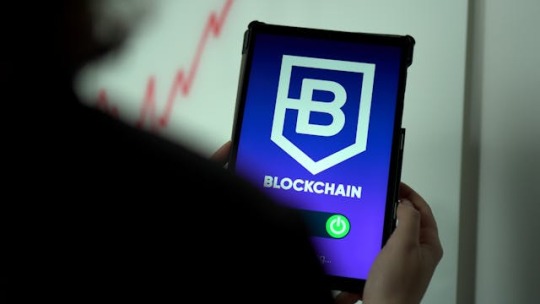
#blockchain development services#custom blockchain development services#blockchain as a service#blockchain solutions
0 notes
Text
#blockchain product development#blockchain development services#blockchain solutions#smart contract development#blockchain integration#blockchain technology
0 notes
Text
5 Ways Blockchain Is Quietly Powering the Apps You Use Every Day
Blockchain is no longer a niche technology limited to cryptocurrencies. Behind the scenes, it’s quietly transforming how modern apps operate across industries—from finance and gaming to logistics and healthcare. Most users don’t realize it, but blockchain is already embedded in many of the platforms and services they interact with daily.
This article explores five powerful, real-world applications where blockchain plays a central yet invisible role. From securing digital identities and enabling transparent supply chains to powering loyalty programs and decentralized cloud storage, blockchain is making today’s apps more secure, efficient, and transparent—without users even noticing.
Whether you're using a ride-share app that verifies driver credentials, a mobile wallet that handles digital currencies, or an e-commerce platform with traceable product origins, blockchain is likely involved in the background.
As adoption grows, so does the demand for reliable blockchain development services. Companies across sectors are partnering with tech experts to integrate blockchain features that improve trust, automate transactions, and reduce reliance on third parties.
If you’re a developer, business owner, or curious tech enthusiast, this post offers a clear and practical view of how blockchain is reshaping everyday digital experiences. No hype. Just facts and use cases that show how quietly—and effectively—blockchain is becoming part of our daily digital lives.
Dive in to learn how this technology is not just about crypto anymore—it’s the infrastructure behind the next wave of digital innovation.
1 note
·
View note